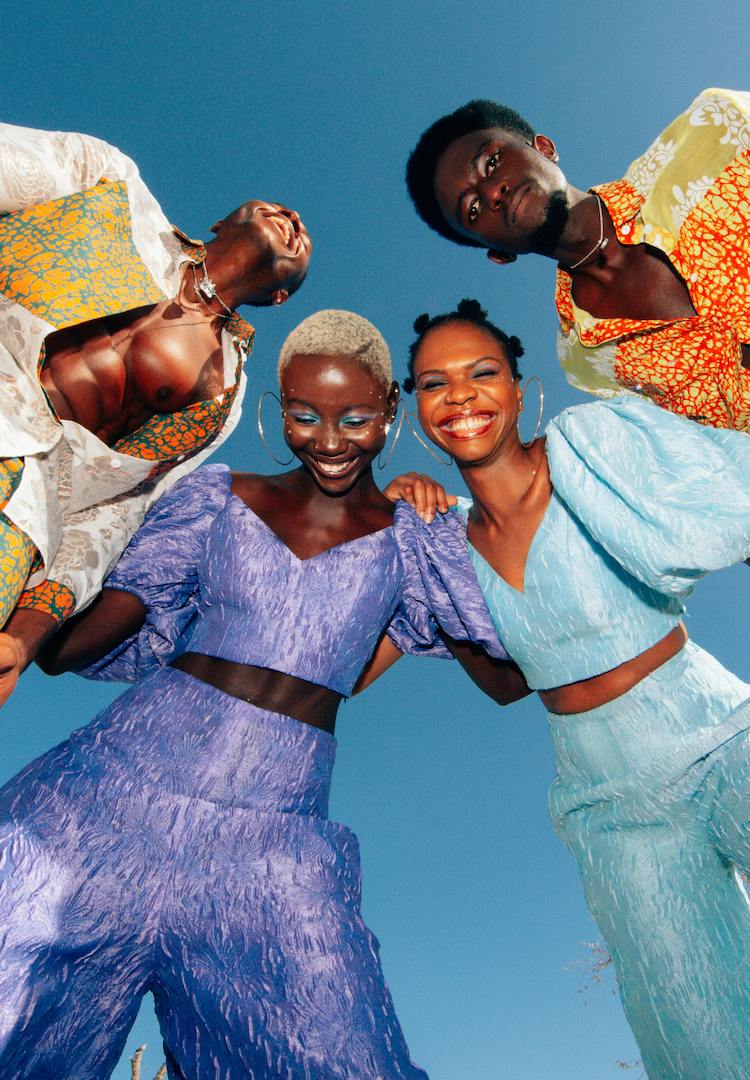Spend like there’s no tomorrow: How Gen Z’s nihilism is changing their approach to money
WORDS BY KITTY LLOYD
“It shouldn’t surprise us that they’ve ignored a bootstraps mentality and instead yearn to just feel good in the moment, even if it’s temporary.”
Gen Z is everyone’s favourite target for both sympathy and scorn as they’re deemed overemotional, keenly political and nostalgia-obsessed. The best and the worst of Gen Z stereotypes are backdropped by the dark prediction that this generation will be the first in living memory to be worse off than their parents. And as Zoomers enter an adulthood that’s defined by pandemics, financial unrest and climate crisis, this forecast grows in truth.
With the world growing seemingly meaningless around them, we’re seeing Gen Z spend beyond their means as well. Instead of planning for a picket-fenced future, many spend money with only the present in mind. They compensate for the ongoing global chaos with instant serotonin boosts and temporary thrills.
Interested to hear how others navigate the world? Head to our Life section.
TikTok provides us with the perfect arena to see this in the wild. In the last year or so, there was a trend that claimed “Money will come back, but you’ll never be twenty-something and [insert activity]”, be it seeing a sunset in Europe, dancing at a Harry Styles concert or splurging on Prada sandals from Vestiaire Collective. Despite our living circumstances saying otherwise, money is represented in this content as constantly flowing, unlike the happiness of our youth.
The topic of money lives many lives on the platform, as we take in the #iwanttogotothere lives of parasocial friends to the depressing truths of #corecore. While genuine financial advice finds followers on TikTok, many videos normalise daily indulgences that would make Boomers eye-roll. From sweet little afternoon treats like a $7 latte to hundreds of Sonny Baby toys, these purchases attempt to make life more tolerable.
As a window into the worlds of creators anywhere and everywhere, TikTok has rewritten the narrative of what we collectively accept as normal. Consumption has always been the handmaiden of internet culture and unsurprisingly, while we take in hundreds of strangers’ lives daily, the needle is being pushed as to what’s a necessity and what’s a luxury. Everyday spending is in its change era.
This phenomenon doesn’t just reflect the lives of the richest and loudest; it reveals a growing trend within generational finances. Recent studies have found that only one in three Gen Z people are actively saving at the moment. It seems this youngest generation is happily engaging in what was first coined by the youth of South Korea ‘shibal biyong’ or a fuck-it expense.
This spending is driven by the safe assumption that home buying and other life milestones will always be out of reach, so what’s the point of saving? Get an Uber home, buy a Le Creuset Dutch Oven and experience Taylor Swift’s new album on AirPod Maxes. If it feels like a downpour is on the forecast indefinitely, why save for a rainy day? This shouldn’t be misdiagnosed as a symptom of a generation’s reckless entitlement, but instead, an indicator of what happens when nihilism becomes collective.
Maybe TikTok’s push for consumption isn’t a result of financial illiteracy but a reckoning with reality. This generation experiences unprecedented rates of mental health issues, eco-anxiety and hopelessness, only exacerbated by a global pandemic. They were also raised amid the social media revolution, with their formative years defined by overexposure to a darkening and always-on news cycle. It shouldn’t surprise us that they’ve ignored a bootstraps mentality and instead yearn to just feel good in the moment, even if it’s temporary.
So what do generational spending shifts really mean?
The road to adulthood is tolled – literally. Most of what we consider maturity comes about through disciplined saving and spending. Think home ownership, parenthood and travel; these investment milestones punctuate growing up. But what happens when a generation doesn’t follow this pre-planned route?
As Gen Z taps out of this conventional life path, we’re presented with an exciting and maybe terrifying possibility to reshape what we consider leading a good life is. We’re not at risk of this generation never growing up, but instead, we’re redefining what that even really means. Gen Z has proven itself fearless in challenging the status quo and this evolving relationship with money is no different.
Alongside their idyllic day-in-the-life TikTok hauls, you’ll also find this generation unafraid to talk boldly about our financial and political circumstances with unprecedented rates of political engagement. Gen Z knows their fuck-it expenses are fucked, but in most cases, they’re aware that giving them up isn’t going to put those big life stages in better reach.
They spend like there’s no tomorrow because the current cultural circumstance they’re witnessing isn’t offering much peace of mind that there’s going to be one. What fuck-it spending reveals is a generation grappling to make the best of the ruins they’ve inherited, one silly little treat at a time.
For more on Gen Z’s relationship with money, try this.










